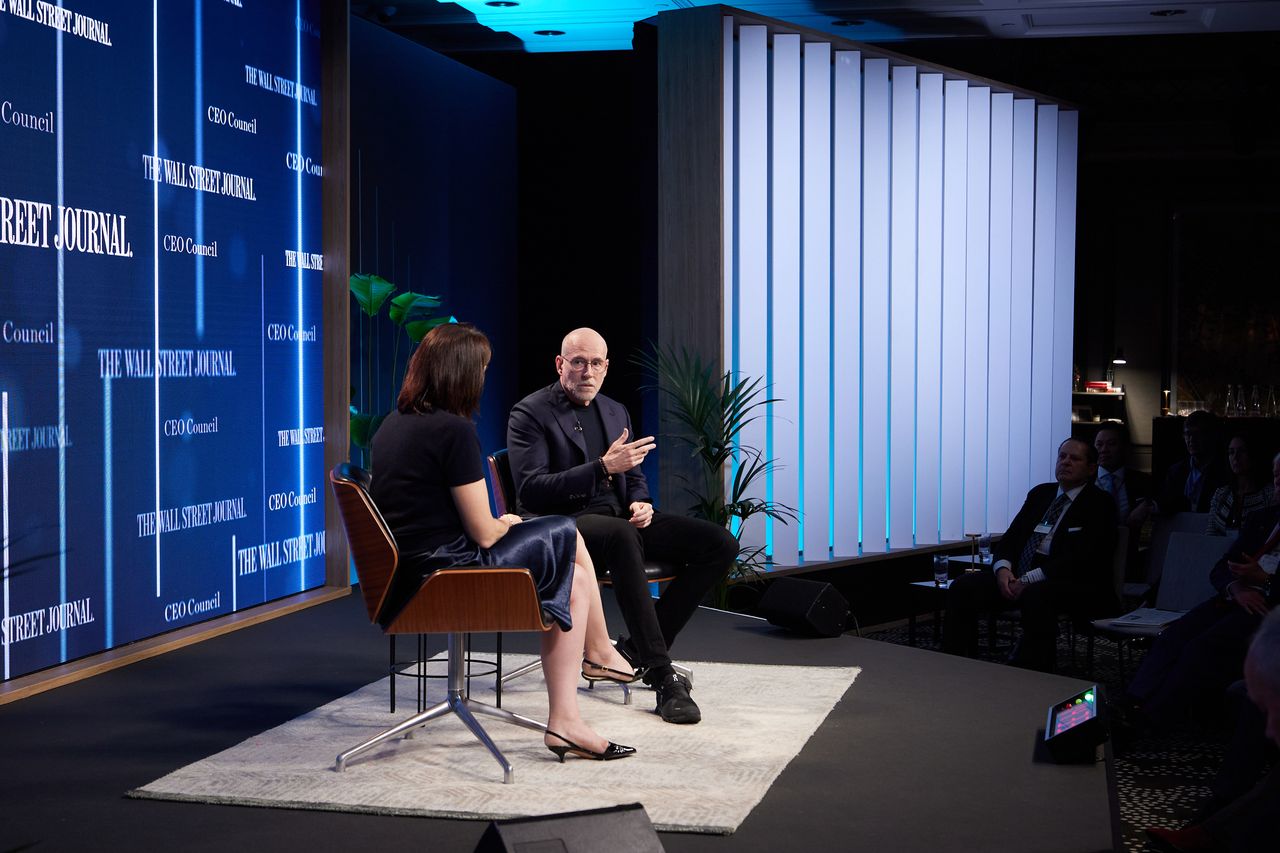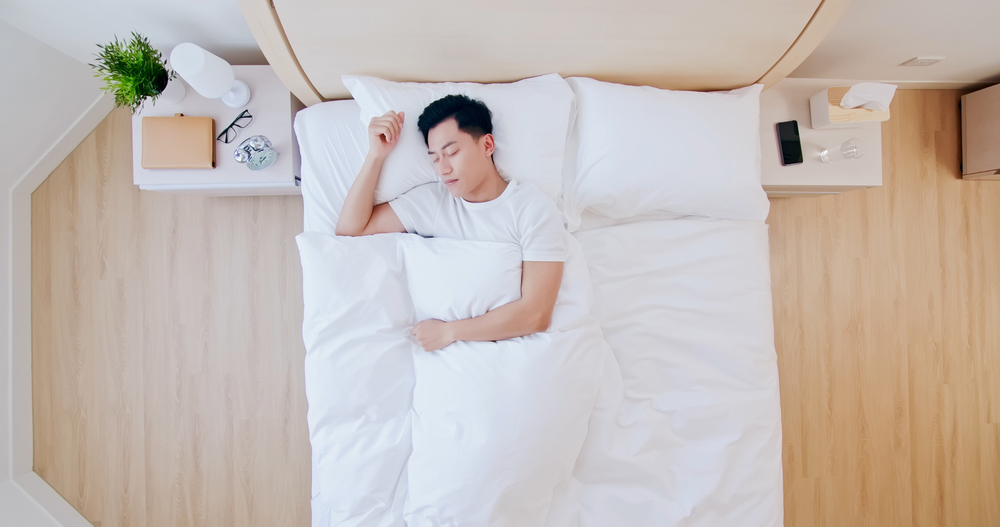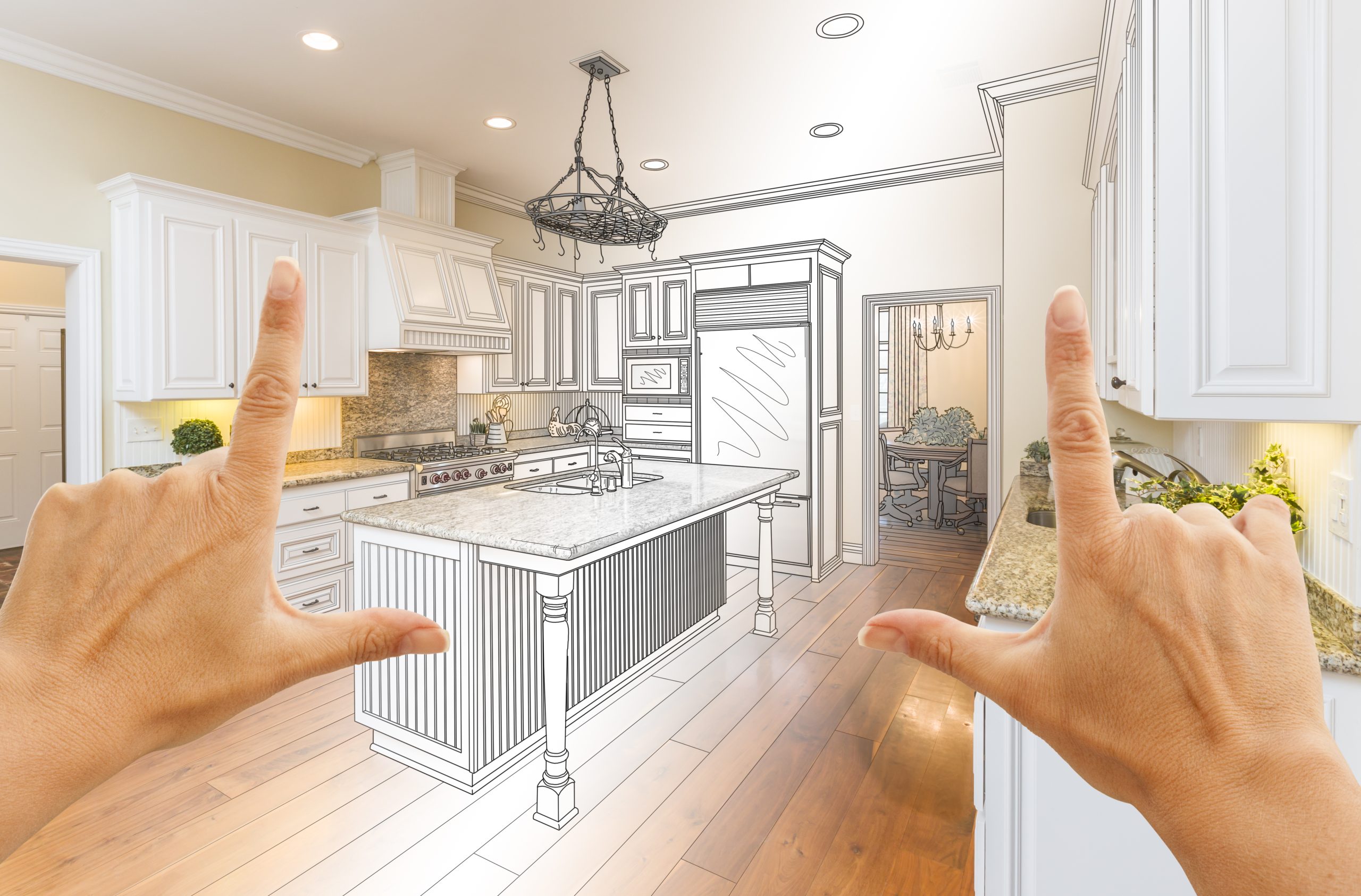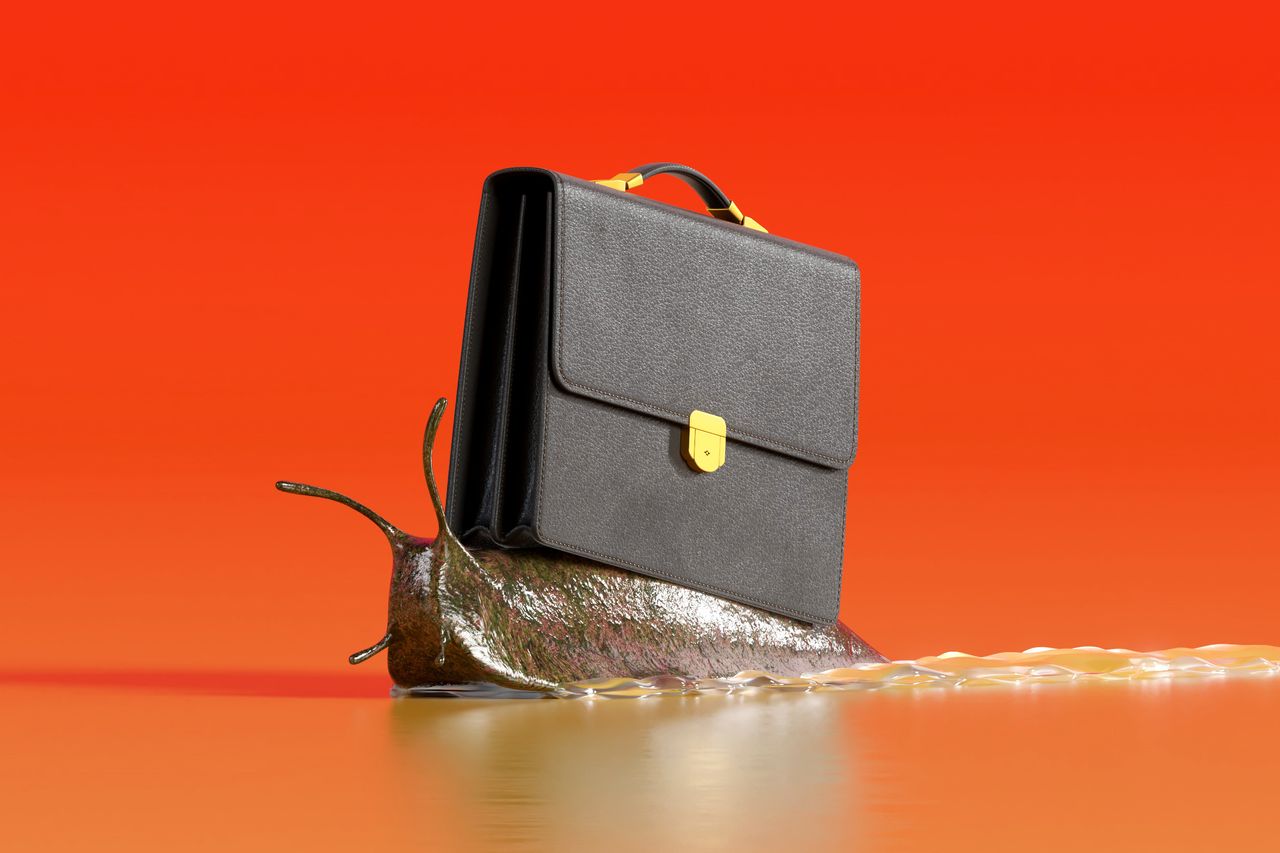Why AI Will Make Our Children More Lonely
The good news, says Scott Galloway, is that AI’s economic impact won’t be the catastrophe that so many are predicting
Scott Galloway, a founder of companies, board member of others, business-school professor and author, is outspoken in his criticism of today’s Big Tech-driven society. At the recent Wall Street Journal CEO Summit in London, he shared some of his views, along with an array of data points, in a wide-ranging, animated talk with Nikki Waller, coverage chief for life and work at The Wall Street Journal. Edited excerpts follow.
The unreal world
WSJ: How will AI change the home and family lives of people in this room?
GALLOWAY: You’ll get richer, and your kids will get lonelier and more depressed.
Most of the technologies we’re coming up with, or a lot of them, are pouring fuel on this flame of loneliness, where we’re finding reasonable facsimiles of a relationship. Social creates this illusion that you have a lot of friends, but you don’t experience friendship.
A lot of young men are self-selecting out of the real world. They believe they’re learning or investing on a trading app, and that’s just gambling. That’s just addiction. They think that they are having a relationship when they’re on Discord, or sharing information. They feel rejected on dating apps. If you’re a young man in the 50th percentile or below in terms of attractiveness, you have to swipe right or select 200 women and say, “I’m interested,” to get one match. If you match, you need five matches for it to turn into one coffee, because four of the five women who have a much finer filter in terms of selectivity, they’ll kind of melt away.
So most men have to match 1,000 times to get one coffee. And that validates that they are not attractive and not valued in the mating market. I think they’re going to increasingly turn to AI-driven relationships.
We have a series of replacements—fuelled by technology—for relationships, mentorships, the workplace, friendships, romantic relationships. And in the short term it sort of fills a void. But it’s empty calories, and I think you end up more depressed.
We’re mammals, and we’re supposed to be around each other. I worry that there’s a whole cohort of young people, specifically young men, who will withdraw slowly but surely from the world. And the output of that is they become really sh—y citizens. They’re more prone to misogynistic content. They’re less likely to believe in climate change. They don’t develop the skills to read a room and be successful at work. They don’t engage in romantic relationships, so they don’t have kids.
WSJ: How do you solve for this in the workplace if you’re a boss?
GALLOWAY: We need systemic solutions. We’ve taken away wood shop, auto shop, metal shop from high schools, and basically told young men in high school to be more like women. “Be organised, disciplined, sit in your seat.” And the education system is highly biased against men.
I think the labor force is quite biased against women still, especially once they have children. But the educational workforce is biased against men. Boys are twice as likely to be suspended than a woman on a behaviour-adjusted basis, the exact same infraction. A Black boy, five times as likely to be suspended.
What you can do as a CEO is, first, drop the fetishisation of elite colleges. There’s going to be two female graduates from college in the next five years for every male. And create more on ramps into your company for kids who don’t have traditional college certification. In terms of the workforce, I’m sort of the person that makes HR uncomfortable, because the No. 1 source of retention at a company is if the employee has a friend.
I’m a big fan of remote work for caregivers. We should have a new classification of worker: For someone who’s taking care of young children, ageing parents, someone who’s struggling with their own health, remote work is a huge unlock. But for people under the age of 40, I think the office is a feature, not a bug. And that is it’s a fantastic place to find friends, mentors and mates. We don’t like to talk about this, but one out of three relationships begins in the workplace.
Ninety-nine percent of relationships that began at work are consensual. And we talk about and we publicise some abhorrent behaviour, and those people deserve to be in prison. But the people who I find are most righteous about being against workplace relationships are already married. And if you’re going to ask a young person to work 12 hours a day in this competitive economy, where are they supposed to find mates?
Work/life balance
WSJ: Gen Z workers, in their first interviews, are asking about work/life balance. What’s the right way to think about that?
GALLOWAY: Work/life balance is a myth. I’ve taught 5,500 students at NYU, and I do a survey. “Where do you expect to be in five years economically?” And something like 90%-plus of them expect to be in the top 1% economically by the age of 30, right? I get it, it’s great. But it means you’re going to have no life other than work, or very little life. I don’t remember my 20s and 30s other than work. It cost me my hair, it cost me my first marriage, and it was worth it.
You can have it all. You just can’t have it all at once. If you expect to be in the top 10% economically, much less the top 1%, buck up. Two-decades-plus of nothing but work. That’s my experience.
The AI future
WSJ: What career advice would you give a young adult right now regarding AI?
GALLOWAY: I’m an AI optimist. But everything in the media on AI is total catastrophising. It’s, “This is the nuclear bomb.”
I’m like, “That’s not that helpful.” Anytime there’s a new technology it goes through the same arc. There’s some catastrophising, there’s some job destruction, and then the economy grows and there’s more jobs.
Automation destroyed a lot of jobs on the shop floor, the manufacturing floor. But we didn’t anticipate heated seats or car stereos, and we created more jobs. I think AI is going to be enormously accretive for society and our economy.
If I were a young person, think about which industry does it disrupt, which industry will have the greatest reshuffling of value? Think about targeting disruption.
I’m not sure people thought processing power would disrupt cable television. But it did, in the form of Netflix.
Netflix’s rise is directly correlated to increase in bandwidth and processing power, because your cable bill kept going up faster than inflation such that you could have Food Networks 3 and 4. So for $12 a month I can get a reasonable facsimile of what was costing me $120 a month.
So what’s next? What does AI kill or disrupt? And where would I invest my human capital as a young person?
The most disruptable industry in the world—as a function of prices increasing faster than inflation relative to the underlying innovation or lack thereof—is, hands down, U.S. healthcare.
I haven’t had health insurance in five years. And when I tell people I don’t have health insurance, it’s like, “You’re a bad citizen. You’re not a good dad.” No, health insurance is nothing but a transfer of wealth from the poor who can’t absorb a big shock to the rich who can.
That is ripe for AI to come in and look at you and say, “You know what? You’re better off taking 4% of your salary, putting into the 401(k), using it if you have a healthcare crisis, but not buying insurance.”
There’s going to be so many little AI-driven healthcare companies that go after the American healthcare complex.
AI for me, if I were 22, 25, 30, and wanted to invest my human capital, I would think, “Where is the real action going to be? A reshuffling of shareholder value?” It’s going to be AI-driven startups in the healthcare space.
 Copyright 2020, Dow Jones & Company, Inc. All Rights Reserved Worldwide. LEARN MORE
Copyright 2020, Dow Jones & Company, Inc. All Rights Reserved Worldwide. LEARN MORE
This stylish family home combines a classic palette and finishes with a flexible floorplan
Just 55 minutes from Sydney, make this your creative getaway located in the majestic Hawkesbury region.
The right foods and strategic scheduling can improve your shut-eye
Did your mum ever suggest a warm glass of milk to help you sleep?
Science says she may be right.
An emerging field of research called chrononutrition indicates that choosing the right foods and meal times may improve our sleep . Some key findings: Eat dinner early. Keep consistent schedules. And, yes, drink milk.
You already know that fruits, veggies and lean protein are good for your health. But they can boost your sleep, too. These foods are the basis for the Mediterranean diet, which research shows may improve sleep quality, reduce sleep disturbances and boost sleep efficiency—the amount of time you spend asleep when you are in bed.
Eating a Mediterranean or other similarly healthy diet is linked to a reduction in symptoms of insomnia , according to a just-published review of 37 studies with almost 600,000 participants. This same research also found that unhealthy diets—high in simple carbohydrates and processed foods —are associated with an increase in insomnia symptoms, says Frank Scheer, a professor at Harvard Medical School, who studies the internal body clock.
When we eat affects our internal body clock, or circadian system, which regulates our physiology and behaviour, including sleep. While our master clock resides in our brain, each of our organs has its own clock, too. We don’t want to wake up our stomach just when we’re trying to go to sleep.
“There’s a rhythm to our digestive system,” says Kelly Baron, director of the behavioural sleep medicine program at the University of Utah. “And eating at the wrong time can cause internal jet lag.”
Roughly a third of American adults don’t get the recommended seven to nine hours of sleep, according to the Centers for Disease Control and Prevention.
When Sarah Linderman, 46, started having sleep problems several years ago—tossing and turning for hours before drifting off, then popping awake for good at 3 am — a doctor suggested she focus on her diet.
The doctor recommended she consume more of her calories earlier in the day, load up on protein and veggies, cut back on cocktails at night and finish her last meal at least three hours before bedtime. Linderman soon found herself falling asleep more easily. She also began sleeping seven or eight hours uninterrupted and waking feeling refreshed in the morning.
“With the right nutrition, I took my sleep back,” says Linderman, who owns a marketing company in San Pedro, Calif.
What’s the best way to adjust your diet to improve your sleep? Here’s some advice, according to a growing body of research.
Follow a Mediterranean diet
A diet high in vegetables, fruits, whole grains, fish and unprocessed lean meat is good for nutrition and may promote sleep by reducing inflammation and providing nutrients that boost the neurotransmitter serotonin and the hormone melatonin. It also balances our gut microbiome , which may help regulate our circadian rhythm, says Uma Naidoo, a nutritional psychiatrist and director of nutritional, lifestyle and metabolic psychiatry at Boston’s Massachusetts General Hospital.
Some nutrients are particularly helpful.
Tryptophan is an amino acid necessary to produce melatonin. Our bodies can’t produce tryptophan, but foods that provide it include turkey, chickpeas, milk, grains, nuts and seeds.
Serotonin is also a precursor to melatonin. Fruits, vegetables and nuts can help boost serotonin.
Melatonin promotes sleep and influences the timing of the circadian system. Eggs, fatty fish such as salmon, mushrooms, bananas and tart cherries help promote it.
Naidoo’s perfect sleep-promoting dinner suggestion? A mushroom omelet with a side salad topped with flaxseed and walnuts.
Have an early dinner
People who eat close to bedtime have poorer sleep quality, studies show.
Researchers think this may have something to do, in part, with body temperature. Our body typically cools down before bed; this is an important part of our circadian rhythm. Digestion heats our body up, messing with this process.
“Your stomach is working up a sweat just as you’re trying to wind down,” says Marie-Pierre St-Onge, director of the Center of Excellence for Sleep and Circadian Research at Columbia University.
Eating before bed can also cause acid reflux, which often disrupts sleep.
A good rule of thumb, researchers say: Eat dinner at least two to three hours before bedtime to give yourself time to digest your meal.
Be consistent about meal times
Having a regular eating rhythm sends a strong signal to your brain about when it is time to be alert and when it is time to be drowsy, says the University of Utah’s Baron.
Try to eat your first meal and your last meal around the same time each day. “This bookends your day and helps differentiate between waking activities and nighttime,” Baron says.
Eat breakfast
When we don’t eat breakfast, we tend to get hungrier at night. And that sets us up for making poorer food choices closer to bedtime, says St-Onge.
Some studies have shown that people who skip breakfast have lower sleep quality. Researchers aren’t sure why, but they believe it’s because people who eat breakfast tend to practice other healthy habits, such as being more active.
Cut back on alcohol
Yes, alcohol may help you wind down at night and fall asleep faster. But it also messes with your sleep quality . (Do I really need to tell you this?) It suppresses REM sleep, causes sleep disturbances and shortens sleep duration, says Massachusetts General’s Naidoo.
A light evening snack is OK
Hunger is stimulating because the hormones that make you seek food are the same ones that arouse you from sleep, says Columbia’s St-Onge. It’s hard to fall asleep when you’re obsessing about the ice cream in your freezer.
If you eat a snack, make it light and have it at least an hour or so before bed. Pair protein and healthy carbohydrates—hummus and pita or fruit and yogurt—for the biggest sleep boost. Protein is satiating and carbohydrates promote sleepiness by helping the absorption of tryptophan.
And, yes, milk can help, too. A study of people recovering from a cardiovascular event showed that they slept better if they drank milk with honey before bed. And, in general, people who consume more milk throughout the day have better sleep, research shows. Milk is a good source of tryptophan, St-Onge says.
So go ahead and listen to your mum. Have that glass of milk.
This stylish family home combines a classic palette and finishes with a flexible floorplan
Just 55 minutes from Sydney, make this your creative getaway located in the majestic Hawkesbury region.






















